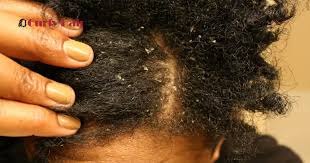Are you tired of battling itchy, red, and inflamed skin? Well, look no further because we've got some nourishing secrets for you! In this blog, we'll dive into the world of dietary needs for eczema relief. Because let's face it, beautiful skin starts from within, right? From understanding eczema to exploring the role of the microbiome and common treatments, we'll cover it all. So, grab your snacks (preferably anti-inflammatory ones) and get ready to feed your skin with the knowledge it deserves. Let's jump right in!
Understanding Eczema
Ah, eczema, the pesky little skin condition that decides to set up camp on our bodies without any invitation. But hey, no worries, let's try to understand this uninvited guest a little better.
What is Eczema?
Eczema, also known as atopic dermatitis, is a chronic skin condition that brings its own unique set of challenges. It's like having an annoying roommate who constantly messes up your skin party. It's characterized by inflamed, red, itchy, and sometimes even oozing patches of skin.
Now, let's dig into the reasons behind this skin extravaganza. Eczema is caused by a lovely combination of genetic and environmental factors and can affect both babies and adults.
Babies with eczema are like tiny warriors fighting a battle against their own immune systems. It's adorable how their immune system gets triggered by things that shouldn't even be on their radar. But fear not, parents, allergy testing is here to save the day. Removing allergens from their diet can help improve their skin and keep them looking adorable.
Eczema can also decide to make an appearance in adults, especially older adults who are just trying to gracefully age like fine wine. But hey, on the bright side, as we age, our skin's microbiome starts favoring more beneficial bacteria and gives the inflammatory ones the boot. So, there might be a silver lining to getting older after all!
So, there you have it, a sneak peek into the world of eczema. It's annoying, it's itchy, but it also reminds us that our skin is a complex little creature that needs some extra love and care. Now, let's move on to the next section and explore the fascinating role of the microbiome in eczema. Brace yourselves, it's about to get even more interesting!
The Role of Microbiome in Eczema
These tiny little creatures that set up residence in your gut and on your skin. Fascinating, isn't it? Well, get ready to be even more amazed, because these microscopic organisms actually play a significant role in eczema.
Let's start with the gut-skin axis. No, it's not some intergalactic connection between your intestines and your epidermis. It's the link between the microbiome in your gut and the health of your skin. Turns out, the bacteria in your gut can actually influence the condition of your skin. It's like having an internal skincare routine going on!
But here's the catch: people with eczema have different bacteria colonies compared to those without the condition. It's like their gut bacteria are having a total party, and not the good kind. This imbalance in the microbiome is often associated with inflammation and triggers the infamous itchiness and flare-ups of eczema.

"Remember to feed your gut and nourish your skin from within. Embrace that high-fiber diet, dive into fermented foods, cut back on the booze, and find your stress-busting mojo.”
Dietary Strategies for Eczema Relief
When it comes to finding relief for your itchy, inflamed eczema, you might be surprised to learn that what you eat can actually have an impact. Yes, that's right, folks. Your diet can play a role in managing those flare-ups.
So, what can you do to change this chaotic bacteria party? Well, there are a few strategies you can try. One option is to promote a healthier microbiome by changing what you eat. And no, I'm not talking about waving goodbye to pizza and ice cream forever (thank goodness!). I'm talking about incorporating foods that support a diverse and thriving gut microbiome.
For starters, a high-fiber diet is key. Think nuts, seeds, beans, vegetables, and fruits. These fiber-rich goodies are like a feast for your gut bacteria, keeping them happy and promoting better overall health. And hey, who doesn't want happy gut bacteria?
In addition to fiber, incorporating fermented foods into your diet can also be beneficial. Yogurt, kefir, tempeh, kimchi, and sauerkraut are all examples of these gut-friendly options. They contain probiotics that can help improve your gut health and potentially even calm down the party crashers causing your eczema.
Now, I know what you're thinking – "What about alcohol? Can I still enjoy a glass of wine or two?" Well, alcohol can actually change your gut microbiome, which might not be the best news for your skin. So, it's wise to limit your alcohol intake if you can. But hey, a little indulgence now and then won't hurt. Life is all about balance, after all.
Lastly, let's not forget about stress. We all deal with it, and boy, can it take a toll on our microbiome. Research suggests that stress can influence the balance of our gut bacteria, so finding healthy ways to manage it is essential. Whether it's yoga, meditation, or binge-watching your favorite TV show, take some time to relax and give your microbiome a break.
So, my eczema warriors, remember to feed your gut and nourish your skin from within. Embrace that high-fiber diet, dive into fermented foods, cut back on the booze, and find your stress-busting mojo. Your microbiome will shout, "Thank you!" and your skin will sing with joy. It's time to show eczema who's boss!
Nevertheless, it's advisable to seek guidance from your physician or a healthcare expert concerning your skin condition.
Ensuring that your nutrient intake aligns with the specific requirements based on your age and gender, and incorporating a diverse range of whole foods into your diet, is typically the most effective approach not only for managing your skin condition but also for maintaining overall health and well-being.
Reference: https://www.ncbi.nlm.nih.gov/







